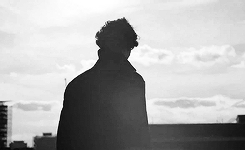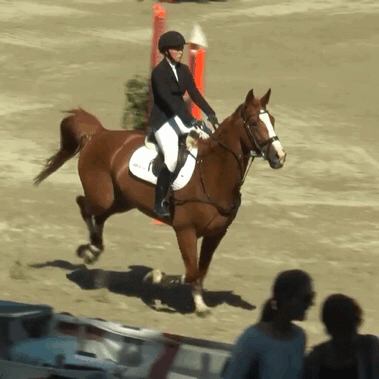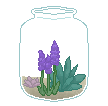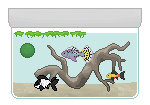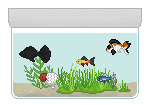s e v e n wrote:School is finally out for the summer, and I'm relishing the chance to be able to write again! C: I've been sitting on a novel plot for almost half the year -no exaggeration- but I haven't been able to do anything with it yet.
Which leads me to ask some very pertinent questions -how do you guys go about plotting your novels? What do you do when you get stuck at a certain section, and how do you go about world-building and character-shaping?
This is partly simple curiosity, and partly my idea of being proactive (for once) and attempting to acquire some tips before driving right into the fray. :p
As well, I've found myself creating a new writing-focused club here, to encourage and aid collaborative writing amongst the members of Chicken Smoothie. I'm not certain whether or not it's something that many people are at all interested in, but I thought I might as well share it.
-Viz
I am currently going through Holly Lisles How To Think Sideways course, so I'm pretty much doing everything according to those workshops. Coming up with an idea, getting a rough sketch of the plot in my head, noting down only three critical elements on which the story hinges, deciding on the protagonist, the antagonist, the setting and the twist and writing The Sentence from it (just one sentence to convey the essence of the plot in an engaging way while not revealing the conclusion), developing all the
critical information (critical meaning ONLY the stuff that either moves the story forward and/or forces a main character to change), thinking up a few good scenes, which I note down in one sentence each on small note cards (The Sentence Light), playing around with the order of the scenes until I find one that I like and that fits, and then... well, writing.
Usually, I'm a very linear writer. I start at the beginning and go step for step, but I'm playing with the idea to jump from scene to scene, no matter from where it is. Maybe that will get my creativity flowing even more xD
I don't really have a usual way to plot. Some elements of it I use every time, like noting down my whole plot in one to three sentences (including the end), noting down the main characters (including antagonist, if he's a character), doing the story math (deciding on the length and dividing it by my mean length of a single scene, which is somewhere between 1,000 and 2,000 words - I usually take 1,000 - to get the amount of scenes I'll have to write for that length), and at least writing down the beginning scene and the ending scene in one sentence on note cards. Sometimes I just go linear from scene to scene, and before I write the next scene, I write down in one sentence what it's about (because a scene is a story in miniature with a beginning, a middle and an end). Other times I pre-plan some scenes and go from there.
When I develop worlds or special physics (like magic) I usually go first for the details I will absolutely need for the story to progress. And then I tend to over-develop worlds *lol* So don't take me as an example of good worldbuilding xD Because quite frankly, you just do not need to develop everything about your world to make it feel rich and well-developed. Building the critical elements is totally enough in the planning stages. Everything else you can build as you go.
(I do usually develop time, weight and distance measures, because I know I'll surely use some of them. Like, I can't always use "noon" for "noon". Inhabitants of other worlds maybe don't call it that. Maybe they call it "midday", which the pets in my CS pet story do, which I still haven't published here because it's far from finished XD).
When I'm stuck I identify the problem first (most often the problem lies within what I've written so far and arises one, two or several scenes before the scene I'm stuck on), then I find ways to fix it and then I fix it. Simple as that.




